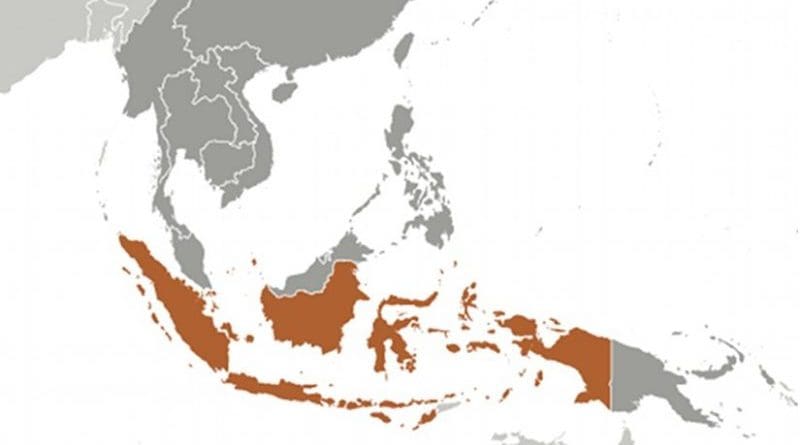Indonesia: Academics, Students Question Plan For Counterterror Surveillance At Universities
By BenarNews
By Tria Dianti and Ika Inggas
A plan by heads of Indonesian universities to begin surveillance on campuses in order to detect extremist ideology and behavior could threaten free speech and learning, academics and students told BenarNews.
At a meeting in Jakarta earlier this week officials in charge of 122 state universities discussed collaborating with the national counterterror agency (BNPT) to establish an intelligence body or presence to monitor and detect signs of radical behavior and ideology at the nation’s campuses, according to local reports.
“We have to keep freedom of expression and creativity on the campus. If not there, where else?” said Ali Wibisono, a lecturer on terrorism and international security at the University of Indonesia in Jakarta.
“I cannot see any strong country in the world whose counterterrorism policy is effective by controlling its universities,” he told BenarNews.
Obed Kresna Widyapratistha, the president of the student executive board at Gadjah Mada University in Yogyakarta, echoed that sentiment.
“In the academic environment, we should be free to express our thoughts, including political opinions. It should not restrain students’ academic freedom to express opinions, critical thinking and to organize,” he said.
The meeting of university rectors took place after the BNPT revealed last month that seven state universities, which are among the country’s top institutions of higher learning, had been exposed to extremist ideology. These campuses include the University of Indonesia, the Bandung Institute of Technology (ITB), Bogor Agricultural University in West Java and Airlangga University in Surabaya, BNPT reported.
But it remains unclear to what extent BNPT is involved in the plan to create an intelligence presence on university campuses.
Dwia Aries Tina Pulubuhu, the rector of Hasanuddin University in Makassar, in South Sulawesi province, who also serves as president of the Indonesian Rectors’ Forum, said the on-campus intelligence apparatus would operate under the authority of the Ministry of Research, Technology and Higher Education.
“The program methodology is being planned,” she told BenarNews, adding that until now university officials tended to learn of student arrests and proliferation of violent ideology on campus from the media, not from the BNPT. “So we need some kinds of intel on campus,” she said.
The executive boards of student bodies could be useful in helping detect radical infiltration on university campuses, she added.
“They can report to BNPT if there are students or academic community members who have links to terror networks or are exposed to terrorism,” Dwia said.
The ministry followed up Monday’s meeting by drafting guidelines for preventing the spread of extremist ideologies on campuses and forming a task force to monitor radical activities at universities, officials said.
Responding to criticism that such a move could impinge on free speech and learning, Intan Ahmad, the ministry’s director general of learning and student affairs, issued a statement suggesting this was being done in the interest of national security.
“Academic freedom should not threaten the existence of the nation and the state’s sovereignty,” he said in a written statement.
In recent weeks, Indonesia has been on edge following a spate of suicide bombings and other attacks carried out in Surabaya and other places by a home-grown group linked to the so-called Islamic State, Jamaah Ansharut Daulah (JAD).
UN conference
According to a report in the Singapore Straits Times, BNPT chief Suhardi Alius attended Monday’s meeting at the higher education ministry.
“We hope this meeting will bring the same understanding about the situation and the same approach in handling radicalism on campuses,” the newspaper quoted him as telling university officials.
Suhardi could not be reached for comment on Friday.
The BNPT chief was in New York, where he was attending a high-level U.N. conference on counterterrorism.
United Nations Secretary-General António Guterres convened the meeting, in an effort to deepen international cooperation in the fight against terror. It drew more than 100 delegations from member-state capitals, led largely by chiefs of counter-terrorist agencies from across the globe, U.N. officials said.
“Today, the frontline against terrorism is increasingly in cyberspace. Terrorists are exploiting social media, encrypted communications and the dark web to spread propaganda, recruit new followers and coordinate attacks,” the secretary-general said Thursday as he opened the meeting at the U.N. General Assembly.
“The military defeat of ISIL in Iraq and Syria last year means foreign terrorist fighters are on the move, returning home or relocating to other theaters of conflict,” he added, using a different acronym for Islamic State.
In remarks to the gathering, Suhardi stressed “the role and importance of youth in preventing terrorism including counter radicalization efforts,” according to a BNPT statement sent to BenarNews by an official at the Indonesian Embassy in Washington.

